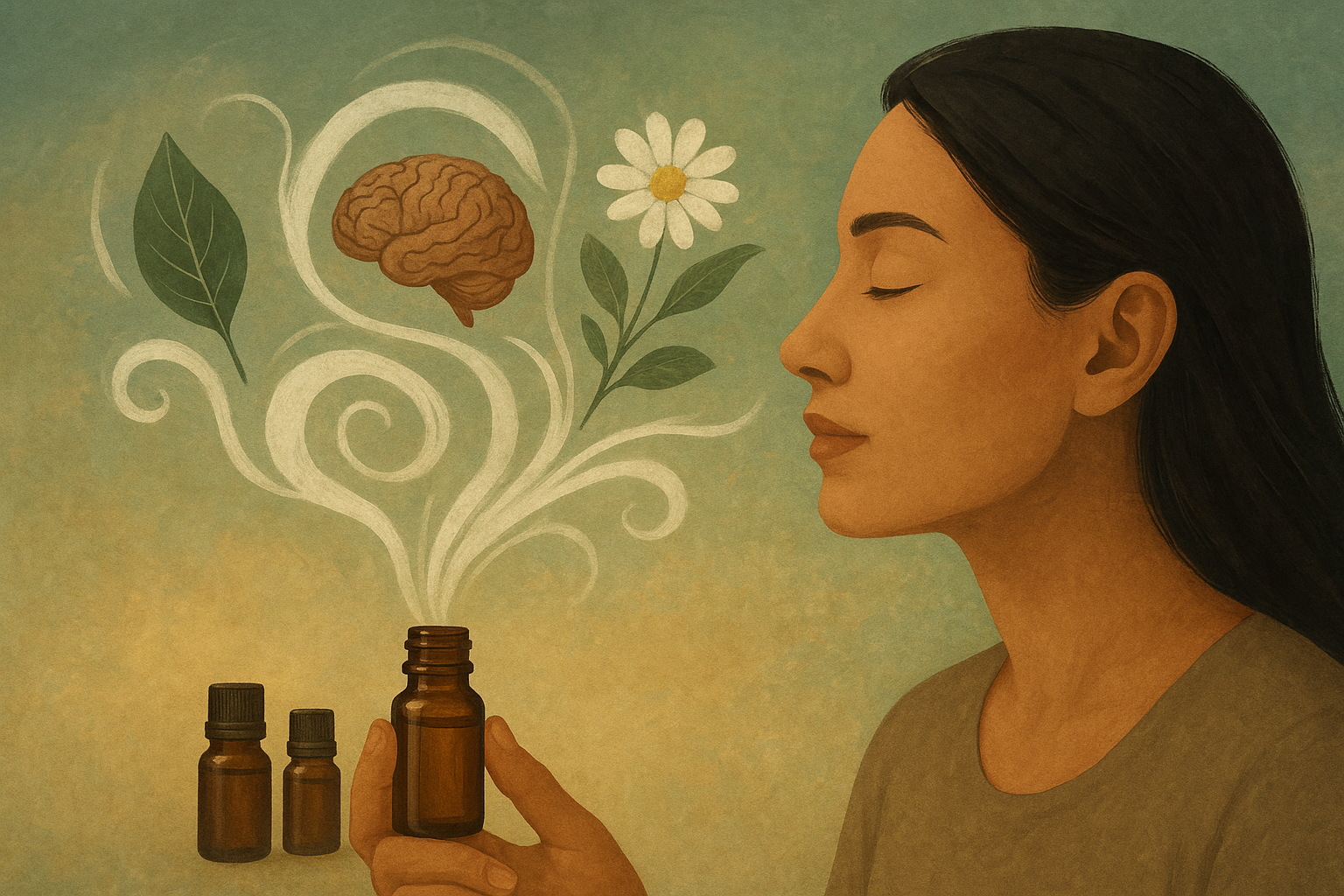Hey there! 👃🏻
Fragrance isn’t just a sensory experience—it’s a neurological event. A Sowndhararajan & Kim review (PMC5198031) called Influence of Fragrances on Human Psychophysiological Activity: With Special Reference to Human Electroencephalographic Response, shows that essential oils and other scents alter brainwave activity, mood, and behavior. Here’s what the data tells us.
How do lavender and rosemary affect brain activity? 🪻🌿
EEG studies reveal that lavender increases alpha and theta activity, often linked to drowsiness and relaxation. Participants reported feeling sleepier and calmer.
By contrast, rosemary decreases frontal alpha and beta activity, which correlates with increased alertness and focus.
Both aromas shift activity toward the left frontal brain region, associated with positive mood, approach behaviors, and reduced depressive affect—even in infants of both depressed and non-depressed mothers.
What’s the difference between sedative and awakening fragrances? 😴😃
Sedative scents such as lavender, chamomile, and citrus oils (lemon/tangerine) lower alpha 1 activity in parietal and posterior temporal regions. Subjects reported feeling comfortable and, paradoxically, more productive.
Awakening scents like jasmine, rose, and peppermint decreased both alpha and beta activity, boosting alertness and reducing workload fatigue.
Can odors change mood and memory patterns? 🧠
It does! Pleasant odors in general increase beta in the left frontal cortex, enhancing emotional engagement.
This is what they found:
Rose oil raised fast alpha in posterior regions, tied to calm inhibitory control.
Jasmine oil boosted beta in anterior and left posterior regions, creating feelings of being fresh, active, romantic, and uplifted.
Lavender oil increased both theta and alpha, a marker of deep relaxation.
How do scents influence sleep and stress recovery? 🌙
Research on Lavandula angustifolia (lavender) reveals that its effects vary depending on sleep quality. For good sleepers, lavender reduced occipital and parietal alpha activity while increasing frontal theta and occipital beta waves, which supports stable rest. In contrast, for poor sleepers, especially women with insomnia, lavender increased theta activity across the brain, suggesting potential benefits for improving their sleep patterns. Interestingly, studies also showed that natural essential odors like mint and lemon stimulated EEG activity more strongly than synthetic commercial scents, with women displaying greater overall sensitivity to these olfactory cues.
So…What’s the point?
Well I just wanted to find out key things that happen to us whenever we use our chosen Oleia Oil for the day. 😝
Oleia Lavender Oil → calm, relaxation, better sleep. 🪻
Bea Oleia Rosemary Pure Oil → sharper focus, alertness, and mood balance. 🌿
Oleia Peppermint Oil → mental freshness, awakening effect. 🍃
Oleia Bulgarian Rose Oil → emotional uplift, calm control. 🌹
Oleia Tangerine Oil (rich in limonene) → gentle sedative comfort, relaxation. 🍊
Science confirmed, fragrances alter the brain. Oleia knows and made it simple for us to use science to our advantage. 😉
Show me your bottle and I’ll show you mine? ’Til next time! 💜
xo, L.
Reference:
https://pmc.ncbi.nlm.nih.gov/articles/PMC5198031/#sec7-scipharm-84-00724


